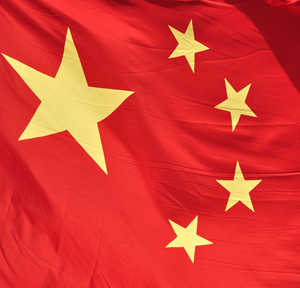Fund Management
Foreign Funds Must Display Value To Woo China Market - Study

The report unpacked some of the qualities that foreign fund management firms, which are seeking to break into China's onshore market, must display and communicate in order to succeed.
Chinese investors are prepared to pay more to obtain access to foreign fund managers but they must have superior performance to justify the added price, says a report coming at a time when non-domestic firms continue to break into the $2 trillion China funds market.
Fund managers’ investment performance, brand credibility and online communications are key factors for attracting Chinese investors, the study by FleishmanHillard, a marketing and communications firm, said. The study includes qualitative and quantitative data. Figures come from an online survey of 250 Chinese investment industry professionals between 20 and 27 July.
However, investment performance isn’t quite as vital for clients as before. When selecting a fund manager, performance factors in making a decision dropped to 56 per cent in 2020 from 64 per cent in 2019 and credibility fell to 55 per cent from 74 per cent.
The report, The Future of Asset Management in China 2020, perhaps unsurprisingly states that mainland Chinese investors stress performance, credibility and online communications as highly valued qualities.
Another finding is that most of these investors want environmental, social and governance-themed product offerings, the report said.
China is opening up its investment markets and encouraging foreign-based wealth and investment management firms to conduct onshore business in the country. The trend is paradoxical at a time when China has been at odds with the West over COVID-19, trade, intellectual property and issues such as the mainland’s new security law for Hong Kong.
“Despite the COVID-19 pandemic and geopolitical issues, the asset management industry in China continued to grow healthily thanks to the ongoing relaxation of market access rules for overseas asset managers,” Patrick Yu, Asia Pacific lead for FleishmanHillard’s financial and professional services practice, said. “Our second China-focused asset management report provides useful insights to help industry players understand investor expectations and plan their communications programmes more effectively. Understanding the industry landscape and having a well-thought out communications strategy continue to be important for overseas asset managers to flourish and attract mainland investors.”
Findings
Qualified Domestic Limited Partnership, which are outbound
investment schemes, and Wholly-Owned Foreign Enterprise fund
products continue to “entice mainland investors”, the report
said. It noted that more than 90 per cent of investors had
invested in Qualified Domestic Limited Partner (QDLP) products
run by overseas asset managers. Most of them paid higher service
fees but they found that acceptable.
Almost nine out of 10 (89 per cent) of the investors had purchased private fund products from overseas asset management houses that have a Wholly-Foreign-Owned-Enterprise (WFOE), down a fraction from last year (91 per cent).
The views of investors about WFOE asset management funds was similar to those from QDLP structures. “While the fees are on the high side relative to the local players, they are very manageable. Appetite for WFOE products clearly remains very strong, reflecting the confidence many Chinese investors have in overseas fund managers,” the report said.
There are “promising prospects” for overseas asset managers in onshore retail funds, and domestic Chinese rules are being relaxed to make it easier for foreign managers to run an onshore fund platform, the report added.
The study chimes with messages from other groups. In August, the rating agency Fitch said that more investment fund managers will bid for onshore licences to run funds in China, a $2.2 trillion market that is still a tenth of the US equivalent as at the end of June. Over the three years to the end of the first quarter of this year, China's mutual fund assets grew by almost 70 per cent, while global mutual fund assets in the US expanded by just 12 per cent, according to ICI Global data. China's mutual fund industry growth during the coronavirus pandemic is also notable, as assets grew by 11 per cent in the first quarter – and global mutual fund assets slipped by 13 per cent in the same period.
International investment managers' ability to access the Chinese domestic market has been limited. In terms of asset raising, these managers could enter only into joint ventures with domestic entities. However, the 51 per cent cap on foreign ownership of investment firms was removed in April 2020.